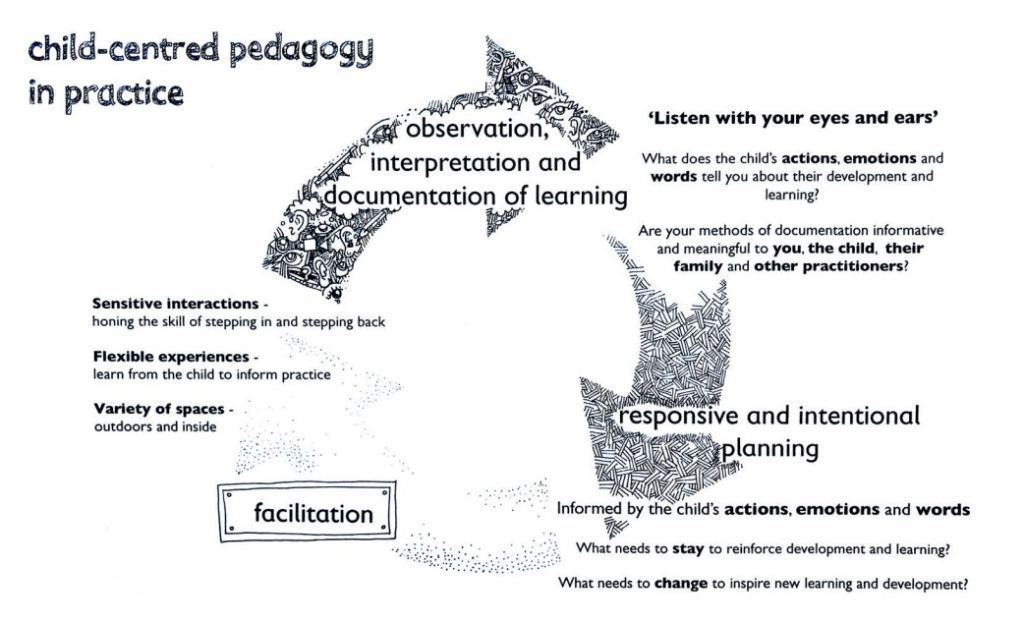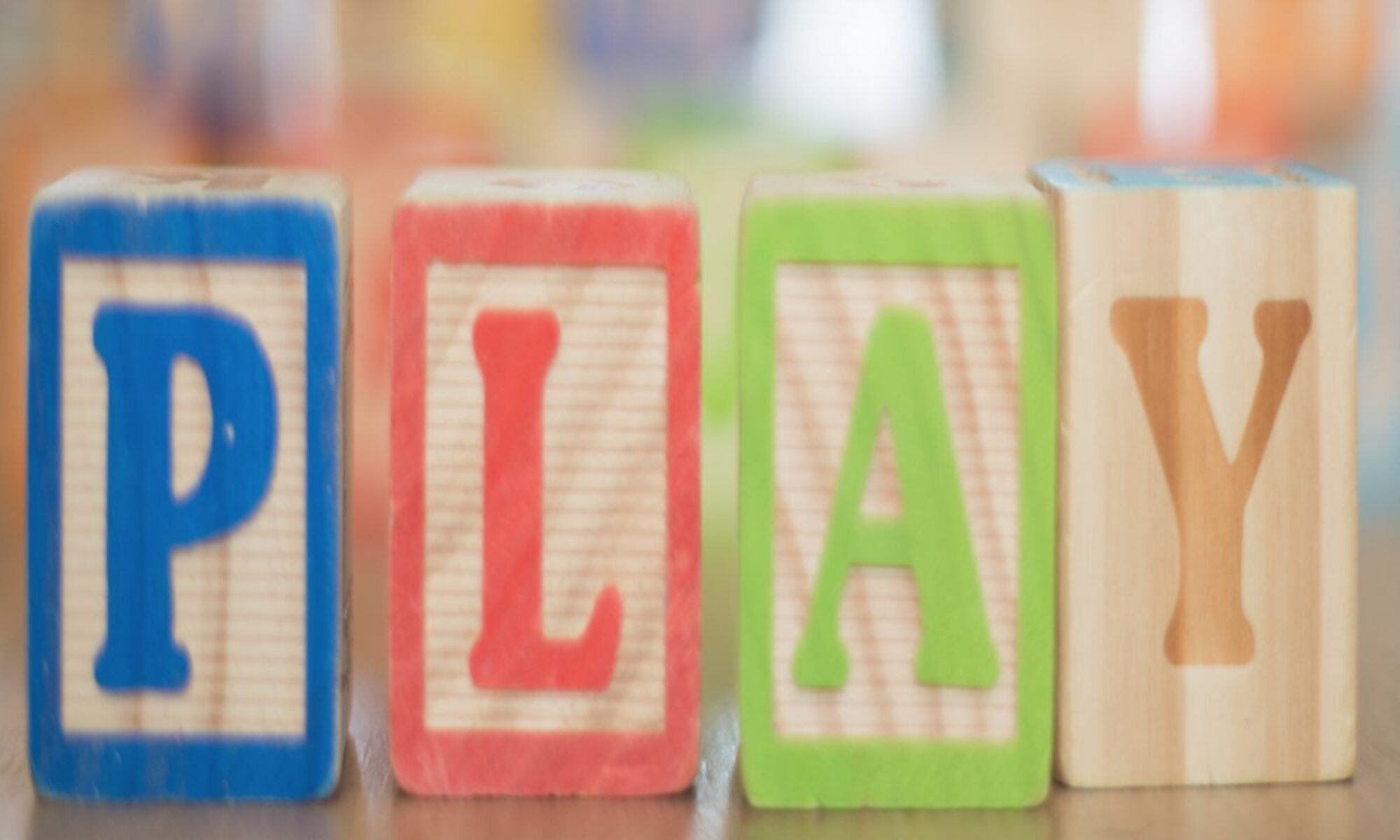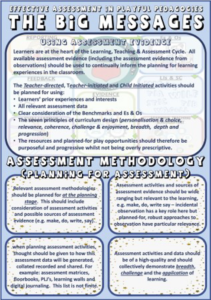
2.3 Learning, Teaching and Assessment
“We use a variety of assessment approaches to allow learners to demonstrate their knowledge and understanding, skills, attributes and capabilities in different contexts across the curriculum.”
“We observe learners closely to inform appropriate and well-timed interventions and future learning.”
An assessment is a judgement about the child’s development and learning. Assessment involves reflecting on one or more factual observations and then analysing, interpreting and making judgements about any significant interests, strengths and capabilities the child have demonstrated.
- Formative assessment is a vital part of teaching young children.
- It is important to remember that each child’s development follow a unique pathway and is not linear.
Observation is essential because it helps us:
- Focus on children as individuals, identifying their starting points (what they can do), strengths, interests, schemas and learning styles, as well as their development and learning.
- See each child’s personal experience of the setting, ensuring all children can find things in the setting that connect with their interests and life experience.
- Raise questions about children’s experience and learning, the quality of provision and adult interaction.
- Share factual information with colleagues and parents.
- Plan relevant, motivating developmentally appropriate experiences for each child.
– Developing High Quality Observation, Assessment and Planning in the Early Years
It is important to use assessments and observations to plan next steps as part of the moderation cycle.
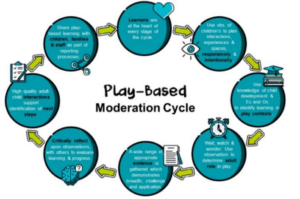
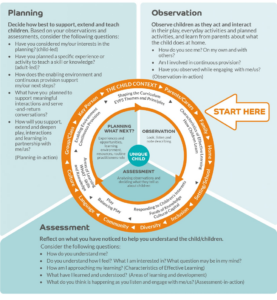
We all know assessment is integral to planning learning and teaching, and happens in different ways at different times throughout the learning process. Realising the Ambition, fundamentally states observation plays a key role in child-centred pedagogy and helps us to gain knowledge of what a child can do.
